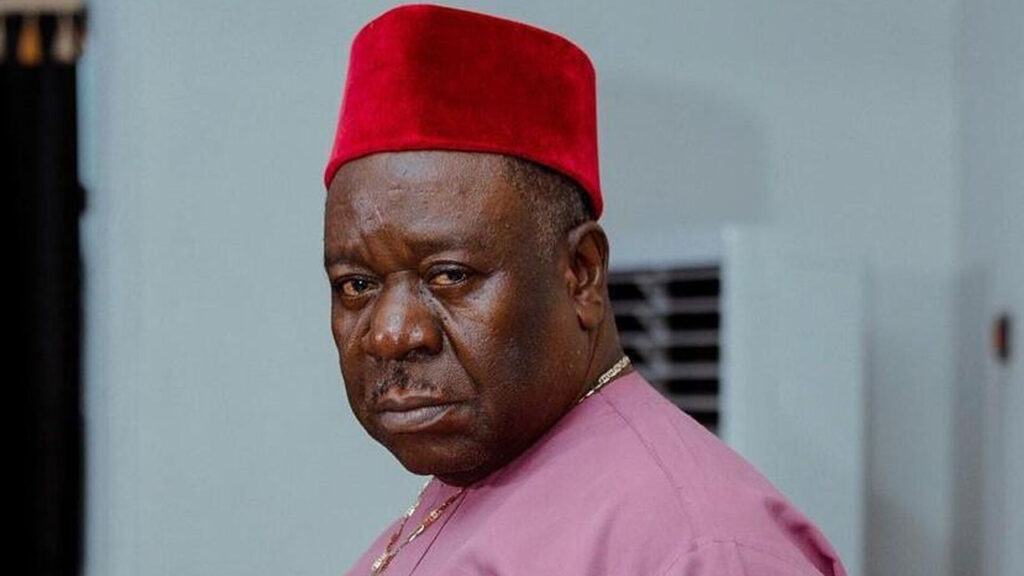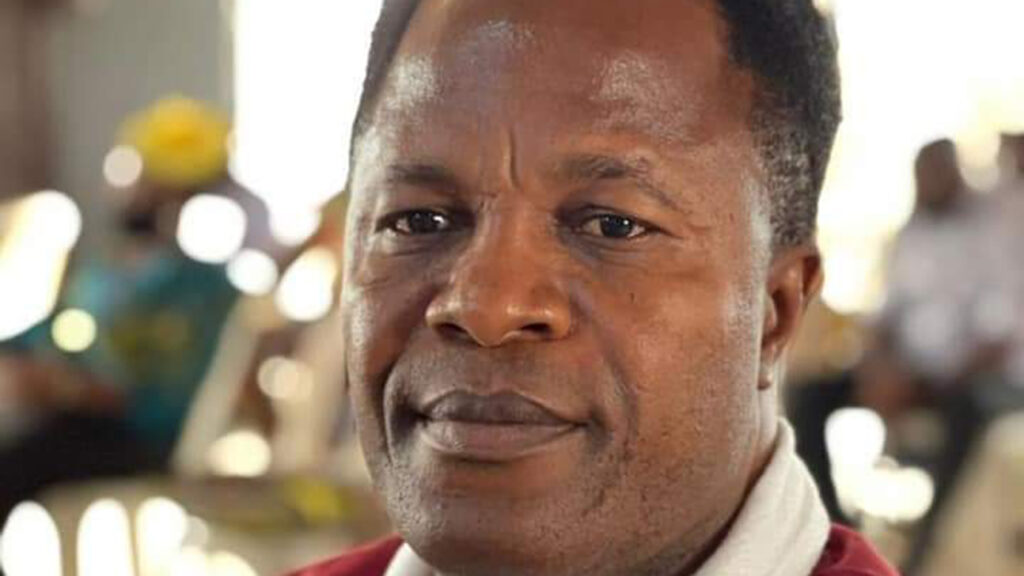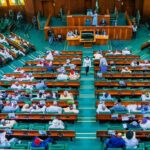
For Vice Chancellors of public universities in Nigeria, one of the major hurdles they grapple with is having to shuttle between their institutions and the nation’s capital on a weekly or biweekly basis to answer questions from politicians in the National Assembly.
This is even as the National Assembly has halted the N683 billion Tertiary Education Trust Fund’s (TETFund’s) intervention projects in 2024, The Guardian can authoritatively report.
It was gathered that frequent invitations and oversight visits by committees of both legislative chambers to heads of institutions is causing disquiet, outrage in the Ivory Towers, as this is distracting Vice Chancellors of universities from performing their duties.
The latest uproar, it was gathered, followed an invitation from the Committee on TETFund and other Services in the House of Representatives to the Secretary General, Committee on Vice Chancellors of Nigerian Universities (CVCNU), Prof Yakubu Ochefu, ordering a stop to the execution of TETFund projects across the country for the 2024 intervention cycle.
CVCNU is the umbrella organisation for Vice-Chancellors of Nigerian federal, state and private universities.
The document, exclusively seen by The Guardian, was dated January 12, 2024 with reference number NASS/HR/10/EDT/VOL4/237.
In what has sent shock waves across the education sector, the letter directed that all TETFund projects for 2024 be halted forthwith pending conclusion of investigation.
The directive further required all universities to submit drawings, designs and specifications, procurement, etc to the committee.
Meanwhile, the Committee of Pro-Chancellors of State-Owned Universities (COPSUN), in a statement issued on Wednesday, January 24, and signed by the Secretary of the committee, Suleiman Abubakar Mahdi, on behalf of the chairman lamented the directives of the House of Representatives,
The statement with Ref no: COPSUN/PR/24/001 and titled “Press Statement On The Directive To The Vice Chancellors Of Nigerian Universities Suspending The Implementation Of TETfund Normal Interventions” noted that the committee “is gravely concerned about this unprecedented directive given at a time when the universities are in various stages of procurement and the likely effect it will have on their budgetary implementation processes.”
The committee’s statement reads: “It should be noted that the Governing Councils of the various state-owned universities are by law empowered to award or approve the award of contracts after due procurement and are doing so in exercise of the prerogative.
“With the greatest respect to the House Committee, we feel that their action is not an encroachment on the autonomy of the universities but an infringement on the doctrine of the separation of powers, which has the potential for conflict among the tiers and branches of government.
“The House Committee may wish to be respectfully reminded that the funds disbursed by TETFund belong to the states and are subject to appropriation and exclusive oversight by the various states’ House of Assembly. Therefore, the directive even if valid, should not apply to the state-owned universities.
“Furthermore, time is of essence in executing these contracts, and with the upward trend in the dollar exchange rate with the resultant inflation, this could ultimately increase cost.”
This newspaper observed that the invitation by the House of Representatives coincided with the day the Tertiary Education Trust Fund (TETFund) announced a N683billion (US $550 million) intervention to beneficiary institutions in Nigeria for 2024.
Addressing heads of beneficiary institutions at this year’s Strategic Planning Meeting in Abuja, TETFund Executive Secretary, Sonny Echono, had revealed that while each university will get the sum of N1.9billion for the Year 2024 intervention cycle, each polytechnic will receive N1.1billion and College of Education would get N1.3bn each.
The Guardian reports that the 2024 allocation is 71 per cent higher than the N400 billion appropriated for public tertiary institutions in 2023.
Signed by the Clerk to the Committee, Gbolagun Akinwumi, the document explained that the panel’s actions were in line with Section 80(3) of the 1999 Constitution.
Titled: ‘Request for Submission of 2024 TETFUND Normal Intervention Implementation Details’, the committee clerk directed the Secretary General to submit relevant documents to the committee on or before February 23 and appear before it on February 27, 2024.
Specifically, it ordered the CVCNU helmsman to halt implementation processes ‘until submission and appearance before the Committee is concluded’.
“In accordance with the House Committee’s statutory oversight mandate on all public tertiary Institutions in relation to the implementation of all TETFUND interventions and allocations, I am directed to request your institution’s 2024 TETFUND Normal intervention implementation details.
“You are requested to furnish the Committee with the full implementation details, including but not limited to the drawings, designs and specifications for all projects procurement and services as contained in your 2024 TETFUND Normal Intervention Allocation letter issued to your Institution.
“In view of the above and sequel to Section 80(3) of the 1999 Constitution of the Federal Republic of Nigeria (As amended) and the Standing Orders of the House of Representatives, the House Committee on TETFund and Other Services shall conduct further consideration of your submission to ensure compliance with the Fund’s Guidelines and Establishment Act as part of its oversight function. Kindly note that you are expected to stay action on implementation processes until submission and appearance before the Committee is concluded,” it reads.
Some industry stakeholders allege that most investigative hearings are often instituted to extort agencies of governments and private businesses. According to them, these investigative committees, at times, end up not submitting any report and use these sittings as camouflage to insist that their fronts be made contractors to execute TETFund projects.

Similarly, others attributed the frequency of the invitations to the fact that some of the committees have overlapping functions. They also listed the committees in the House of Representatives that interface with heads of institutions, requiring similar documents to include those on TETFund and other Services, University Education, Public Procurement and Public Accounts. In the same token, those in the Senate are Committees on Public Procurement, Public Accounts, Tertiary Education and TETFund.
Speaking with The Guardian, Professor Ochefu pointed out that at least four committees interface with institutions of higher learning, particularly universities, at both chambers of the National Assembly.
The CVCNU Secretary General said efforts are ongoing to streamline the process with the committees in both legislative chambers.
He admitted that it is strenuous for Vice Chancellors to appear before multiple committees at different times submitting the same documents.
He said: “At the level of the Committee on Vice Chancellors we had engaged the Chairman, Senate Committee on Higher Education and TETFund and also the Chairman, House Committee on TETFund and other Services that we would like to sit with them so that we can better understand their constitutional role vis-a-vis how it relates to their managing universities and our own statutory role based on the laws that they have enacted, giving us the power, responsibility to do certain things. If we come down and work together we will be able to understand things better.
“So we are trying to leverage on the experience of one of our members who is a former member of House of Representatives who is now a Vice Chancellor so that we understand what the National Assembly thinks about what we do and also engage with the National Assembly to explain our situation better.
“Again, the Minister of State for Education (Dr. Yusuf Sununu) is also from the National Assembly. So if we have these type of actors, we should be able to sit down and agree that yes the National Assembly has statutory right to provide oversight visit but can we do it better? Can we structure it in such a manner that you get all the results right? If the Committee on TETFund has called for all our documentation as part of their oversight, can they not pass their report to the other statutory committees? So if they can broker that type of relationship with the Public Accounts Committee, Procurement Committee, this can reduce that frequency.
“So conscious of the need for them to do their work, we want to see how we can facilitate that in a manner that is efficient, effective and does not waste time and resources. Because if four committees are asking you to bring 40 copies of the same documentation, appearing at different times, it is really a lot of stress on the Vice Chancellors and we would like to see how we can be more efficient in managing and resources for them to do their work better.”
Also speaking with The Guardian, Chairman, Academic Staff Union of Universities (ASUU) Nasarawa State University, Keffi chapter, Prof. Samuel Alu, lamented that the development undermines the autonomy of universities.
“The autonomy of the university is not respected. I am just hearing this information (House of Representatives halting TETFund projects) from you for the first time. But if that is true, then it is unfortunate.
“But again I don’t want to believe that the committees put in place are not supposed to be there. We have the problem of corruption in this country. We cannot deny that fact. So if the National Assembly is putting up committees to checkmate excesses, then I think it’s good. However those committees’ oversight functions should not interfere with universities autonomy.”
Weighing in on the issue, a Senior Advocate of Nigeria, Kayode Ajulo, described the invitations as camouflage meant to extract commitment from university heads for contract awards.
While stressing that there is much more than meets the eye to these incessant invitations and oversight visits, the civil rights activist recalled that he had approached the court some years back to challenge the development but was persuaded by chief executives of some establishments who insisted that they are not interested in prosecuting the matter.
He said: “They (Lawmakers) do nothing than what you and I know. It is totally wrong. I discussed it with Femi Falana (SAN). And he wasn’t happy about it. Every minute, they call and when the university heads go there, it is either to ask for one favour or another. It is not for the purpose of that invitation or oversight visit. In some instances, they even turn themselves to court. It should not be. There should be a proper guideline for invitation.
“And they should allow these chief executives to do their work. And I know why this is happening. Money has gone to TETFund. Everybody wants to know how the money will be spent. Everybody is interested in the contract to be given. The invitation is too much.”
Multiple phone calls to the spokesperson, House of Representatives, Hon Akin Rotimi, proved abortive as he neither picked his calls nor replied text messages sent to him.
However, his Deputy, Hon. Philip Agbese, told our correspondent that he only responds to inquiries from the House of Representatives Press Corps, insisting the committee had already issued a statement and sent to them.
Checks by The Guardian, however, revealed that no such statement was released, as several members of the Corps denied the existence of such a statement.













